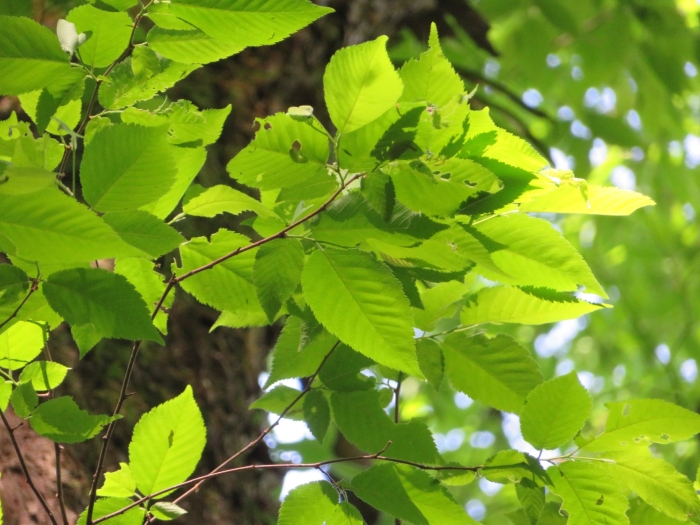East Asian Hophornbeam
(Ostrya japonica)
East Asian Hophornbeam (Ostrya japonica)
/
/

belvedere04
CC BY 4.0
Image By:
belvedere04
Recorded By:
Copyright:
CC BY 4.0
Copyright Notice:
Photo by: belvedere04 | License Type: CC BY 4.0 | License URL: http://creativecommons.org/licenses/by/4.0/ | Rights Holder: belvedere04 | Publisher: iNaturalist | Date Created: 2023-04-28T08:54:25-07:00 |











Estimated Native Range
Summary
Ostrya japonica, commonly known as East Asian hophornbeam or Japanese hop-hornbeam, is a deciduous tree native to the temperate forests of Japan, Korea, and China, specifically in regions such as southern Gansu, Hebei, Henan, Hubei, and Shaanxi provinces. It thrives at altitudes between 3281-9186 feet (1000-2800 meters) and can grow up to 82 feet (25 meters) tall. This species is often found in mixed forests, on mountain slopes, and along stream banks, where it contributes to the local ecology by providing habitat and food for wildlife.
The East Asian hophornbeam has a straight trunk with a narrow, rounded crown and features distinctive, flaky bark. It produces inconspicuous flowers followed by showy, papery fruit resembling hops, which are attractive in the late summer and autumn. The tree is valued for its hard, dense wood and is used for fine woodworking and in the creation of traditional tools. In cultivation, it is appreciated for its resistance to urban pollution and is often used in urban plantings, as a street tree, and in parks. It requires well-drained soil, can tolerate a range of pH levels, and prefers full sun to partial shade. While generally low-maintenance, it can be susceptible to canker diseases and may not be suitable for areas with poor air circulation or compacted soil.CC BY-SA 4.0
The East Asian hophornbeam has a straight trunk with a narrow, rounded crown and features distinctive, flaky bark. It produces inconspicuous flowers followed by showy, papery fruit resembling hops, which are attractive in the late summer and autumn. The tree is valued for its hard, dense wood and is used for fine woodworking and in the creation of traditional tools. In cultivation, it is appreciated for its resistance to urban pollution and is often used in urban plantings, as a street tree, and in parks. It requires well-drained soil, can tolerate a range of pH levels, and prefers full sun to partial shade. While generally low-maintenance, it can be susceptible to canker diseases and may not be suitable for areas with poor air circulation or compacted soil.CC BY-SA 4.0
Plant Description
- Plant Type: Tree
- Height: 30-40 feet
- Width: 10-20 feet
- Growth Rate: Moderate
- Flower Color: N/A
- Flowering Season: Spring
- Leaf Retention: Deciduous
Growth Requirements
- Sun: Full Sun, Part Shade
- Water: Medium
- Drainage: Medium
Common Uses
Low Maintenance
Natural Habitat
Temperate mixed forests, mountain slopes, and stream banks
Other Names
Common Names: Asada, Asian Hophornbeam, Tie Mu, 새우나무
Scientific Names: , Ostrya japonica, Ostrya japonica var. homochaeta, Ostrya liana, Ostrya ostrya var. japonica, Ostrya virginica var. japonica, Ostrya virginica var. japonica,
GBIF Accepted Name: